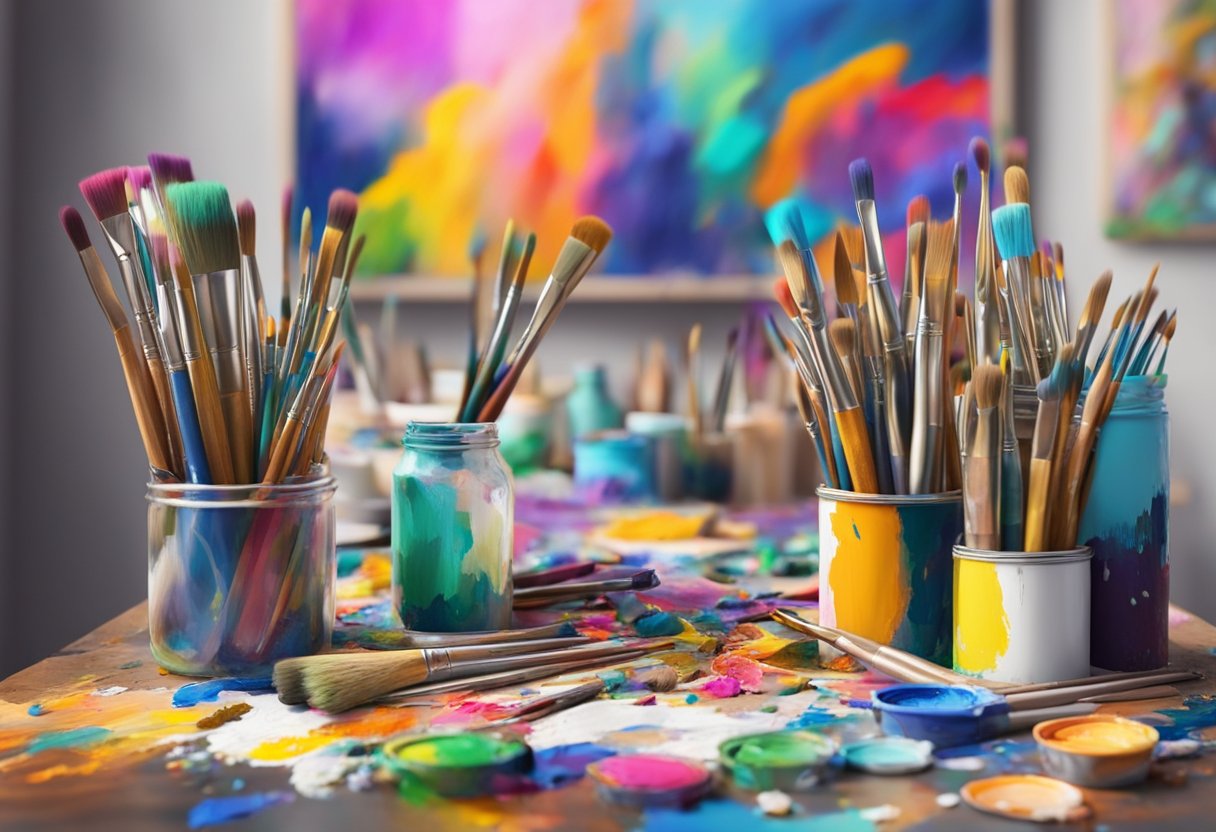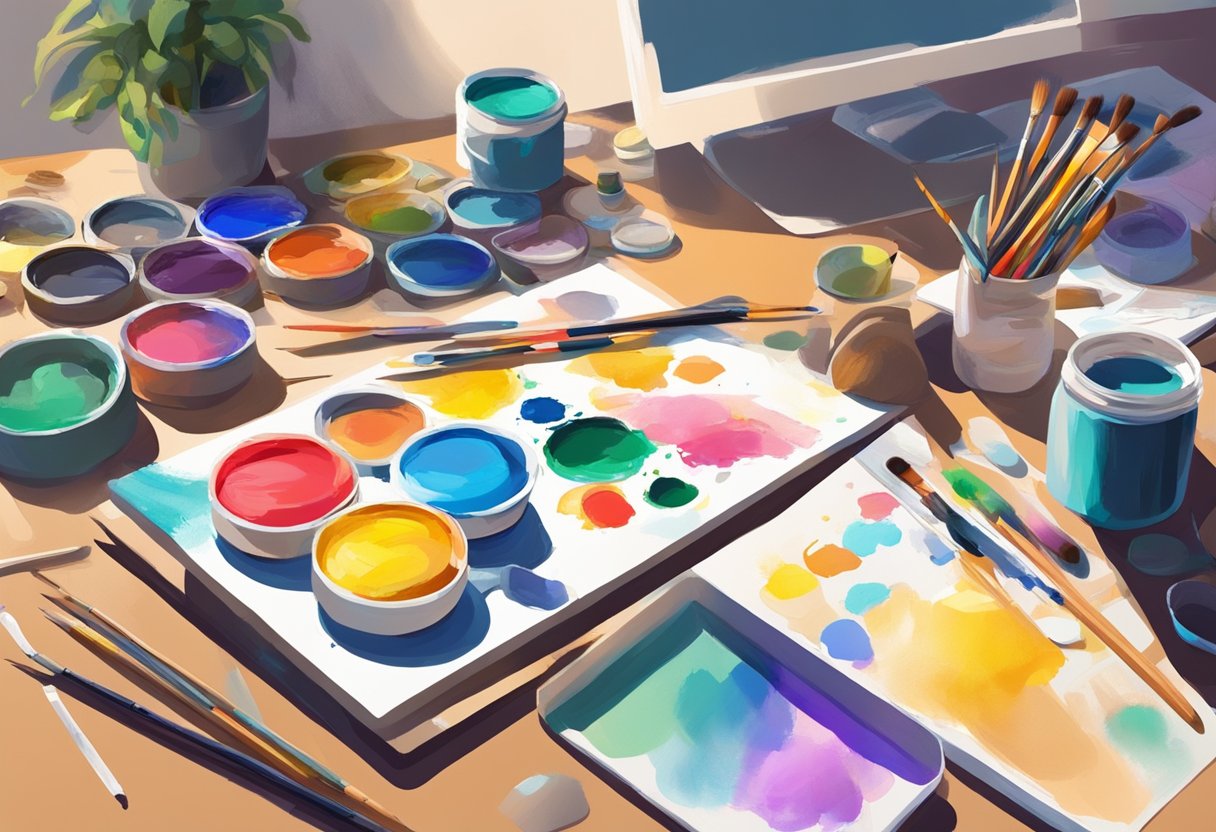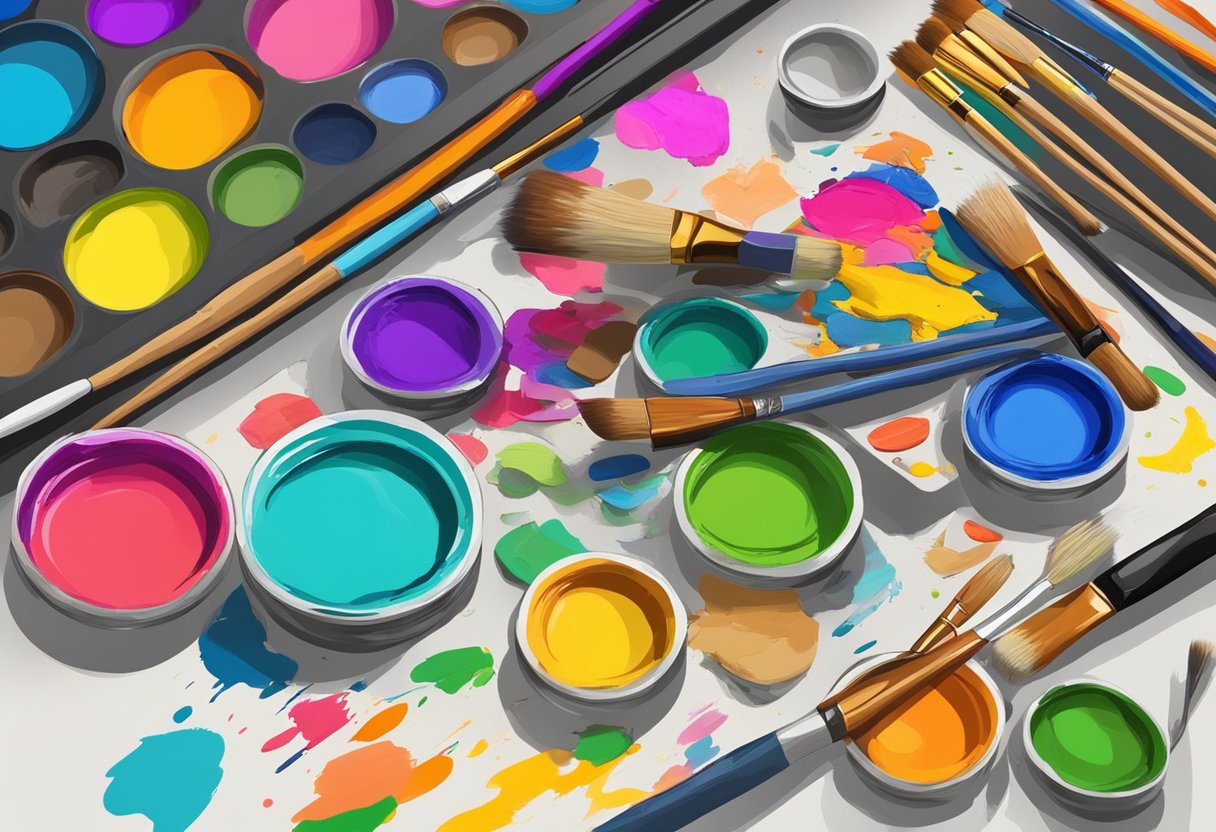Drawing Ideas: What Should I Draw?
Get sketchy with your creativity!

By BrainFall Staff - Updated: April 1, 2024
Most people think they’re pretty creative, but only a few really are.
Learn more about what it means to be creative below, and then take this quiz to see where you stand on the creativity scale!
Creativity is often hailed as a mystical trait, as if it’s a magical ability possessed by only the chosen few. However, the truth is far more inclusive. You may not consider yourself a Da Vinci or a Shakespeare, but creativity is a fundamental aspect of human intelligence that extends beyond artistic expression. It involves the capacity to approach problems in new ways, to make connections between seemingly unrelated phenomena, and to generate solutions. Understanding your own creative potential begins with recognizing that creativity is not just for artists—it’s a skill that you can cultivate and apply in daily life, whether at work, in solving problems, or in self-expression.

The question “How creative are you?” places you at the center of an intriguing self-discovery. While you might think creativity is a talent that you either have or you don’t, research has repeatedly demonstrated that it’s a more dynamic skill set. Your creativity is influenced by your environment, your mindset, and the opportunities you take to challenge your intellectual boundaries. The way you interpret situations, enjoy new experiences, and engage with diverse tasks feeds into your creative energies. So rather than asking if you are creative, it may be more helpful to explore how you can nurture the creativity you inherently possess.

Creativity is not just about producing art; it’s a complex construct involving cognitive processes, emotional influences, and the nurturing of original ideas across various fields. Your ability to think creatively is key to problem-solving and innovation.
Your brain’s ability to form new connections between existing ideas is central to the neuroscience of creativity. Harvard University research suggests that creative people often demonstrate a broader semantic distance between concepts, also known as “divergent thinking.” In practical tasks, such as the Divergent Association Task, you might link unrelated nouns, showcasing the neurological underpinnings of creative thought.
Psychologists recognize that your emotional state profoundly influences creativity. Joy and energy can foster an immersive state of ‘flow,’ enhancing your creative output. Conversely, fear and self-criticism can impede it by limiting your willingness to make mistakes and explore. Maintain mental health and utilize practices like meditation to facilitate open and creative thinking.
To boost your creative processes, it’s beneficial to engage in mindfulness and brainstorming sessions. Mindfulness nurtures curiosity and reduces self-criticism, while brainstorming encourages the expression of even unrefined ideas, free from the fear of mistakes. Creative thinking thrives when you allow yourself to explore numerous potential solutions without premature judgment.
Creativity permeates all areas of life, from the artistic masterpieces of Picasso to the scientific innovations of Einstein. In the workplace, companies prize your creative aptitude for developing new products and solutions. Education systems are evolving to emphasize creativity as an integral part of learning, shifting away from rote memorization toward problem-solving skills and imagination.
Throughout history, perspectives on creativity have evolved. Originally seen as a divine inspiration or the domain of geniuses like Einstein, the modern understanding is that creativity can be developed through experience and expertise. Recognizing the value of creativity, from the simplest tasks to large-scale inventions, reflects your ability to adapt and thrive in a constantly changing world.

Creativity isn’t just an artistic endeavor but a vital aspect of how you interact with the world, offering innovative solutions and enhancing various facets of life, from the workplace to personal development.
Your ability to solve problems creatively is fundamental when faced with challenges. By applying divergent thinking, you can generate multiple solutions from a single starting point. This approach allows you to see connections that others might miss, turning mistakes into opportunities for learning and growth. Being honest in your assessment helps refine the process, as self-criticism is a stepping stone to effective problem-solving.
In the workplace, your creative contributions can lead to the development of a new product or the refinement of existing systems. Your capacity to innovate impacts your company’s bottom line and competitive edge. Employers often probe your creativity during interviews to gauge how you’ll contribute to a culture of continuous improvement. Your motivation to innovate is not only valuable for the company but can also provide you a sense of joy and accomplishment.
Your education plays a significant role in developing your creativity. Curricular activities that encourage curiosity and non-linear thinking prepare you to approach future tasks with a creative mindset. The education system fosters this by emphasizing the importance of divergent thinking—creating multiple solutions to a given problem—which is essential in both academic and real-world scenarios.
Engaging in creative activities is linked to positive mental health, providing you with a channel for expression and an escape from life’s stresses. Creativity enhances your life experience by bringing joy and fulfilment through personal self-expression. It serves as a powerful motivation for continuous learning and self-improvement, allowing you to embrace curiosity, learn from mistakes, and grow beyond your perceived limitations.












